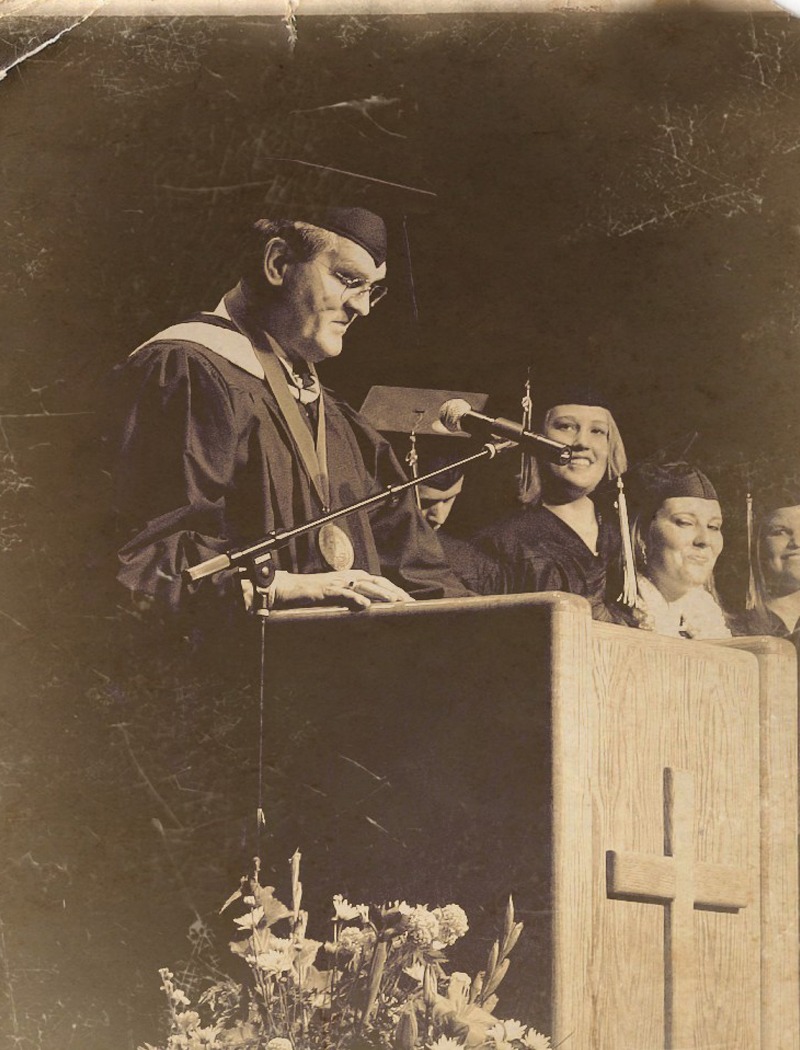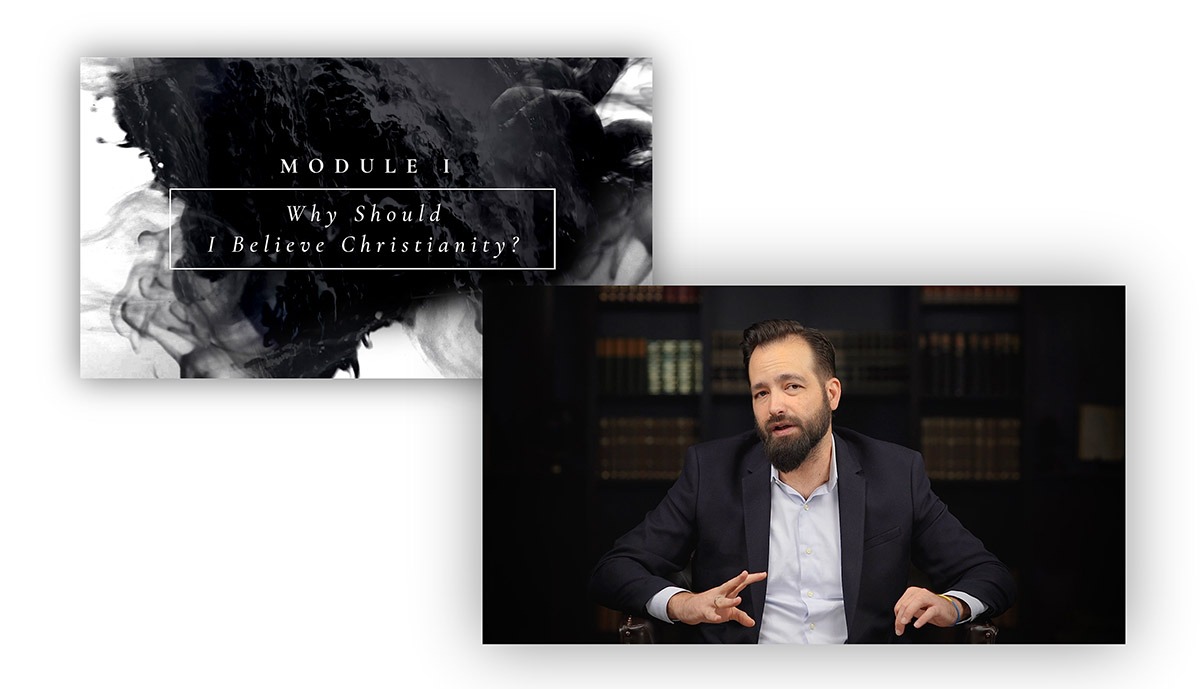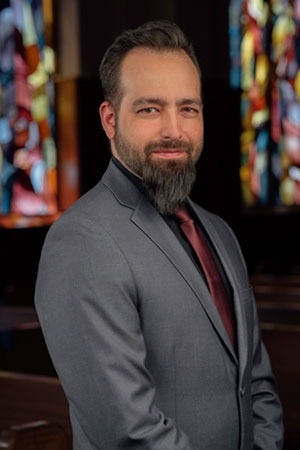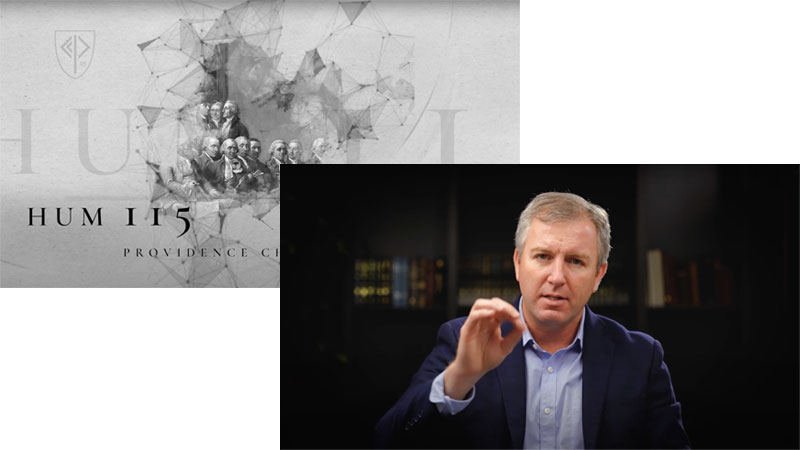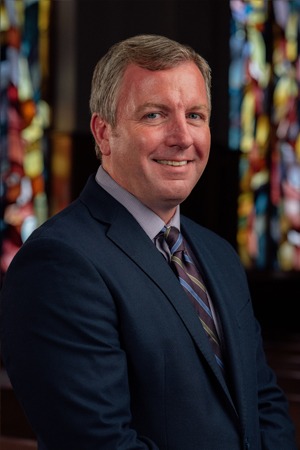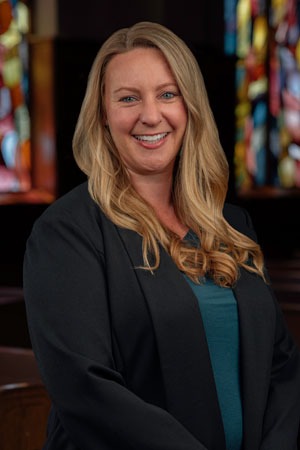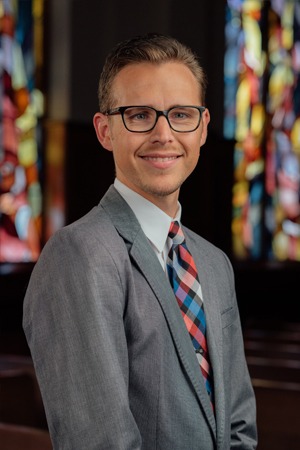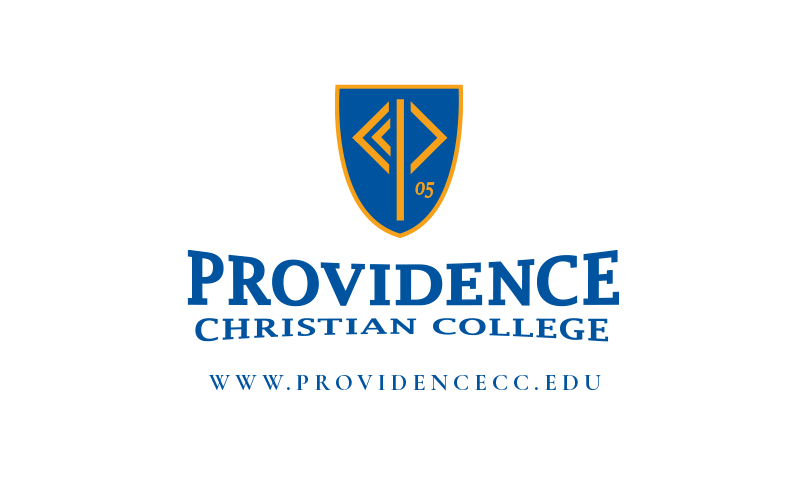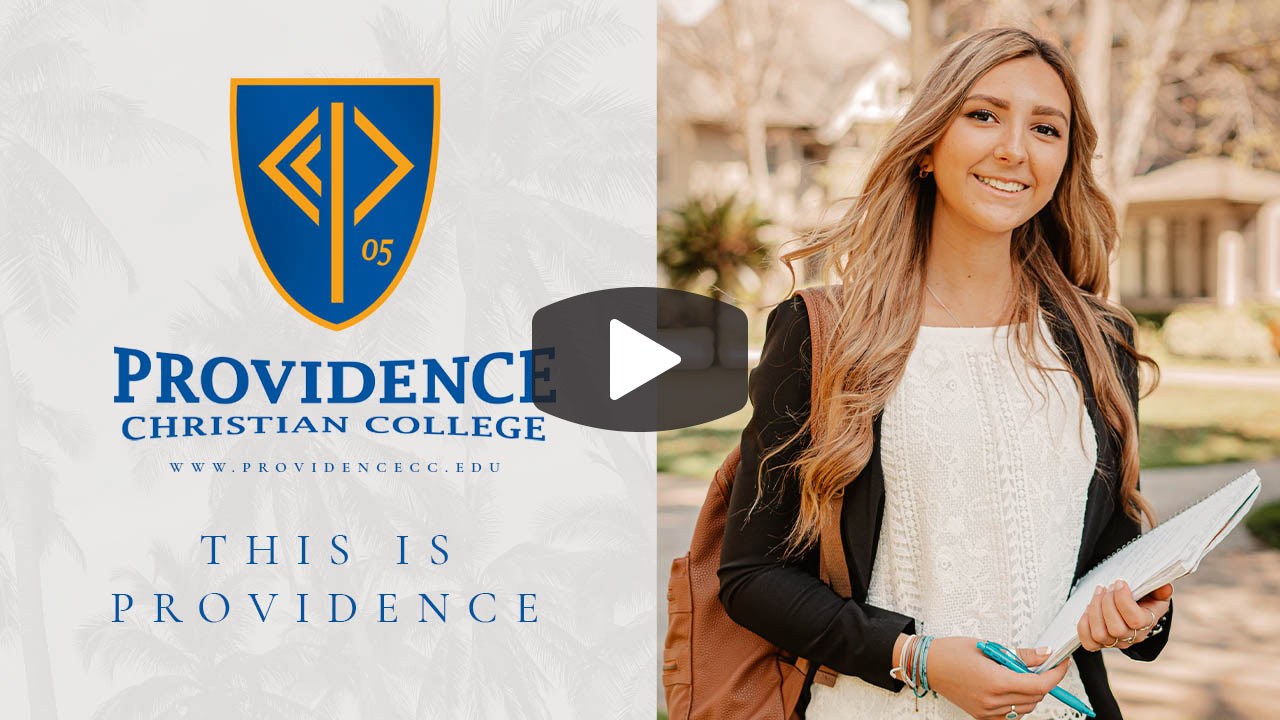Preface
Why should there be another college on the west coast? More pointedly, why should there be a specifically Reformed college on the west coast? In this purpose statement we have set out to explain not only the need for a Reformed Christian school of higher learning, but also what the character and vision of Providence Christian College must be in order to obey the mandate the Lord has given to us to educate our posterity in accord with His Word.
We openly recognize that this task does not belong simply to people of one cultural background or denomination. In the establishment and maintenance of Providence Christian College, we wish to give expression to the unity of Reformed believers, not because they belong to a specific ethnic entity or denomination, but because they love the Reformed faith as expressed in the Reformed Confessions, and because they see the implications of that faith in the educational task of the covenant community. Providence Christian College belongs to Reformed Christians of various backgrounds who want their posterity to come under the covenant claims of Jesus Christ, who want the church of Christ to prosper, and who want our culture transformed for His glory.
All of us associated with Providence Christian College pray that this Statement of Purpose will clearly direct us in that educational endeavor entrusted to us by Christ. To Him alone be all the glory!
Introduction
This document is written to display before our world, to ourselves, and to our posterity the purpose for and principles that govern Providence Christian College in its task to provide a Reformed Christian education.
In November of 2001, a small group of Reformed Christians met in Chino, California, to consider the feasibility of establishing a Reformed Christian college on the west coast. All of those present were motivated by a deep appreciation for higher education coming from a specifically Reformed and Christian perspective. Some had been educated in past years by such Christian colleges. Some had enrolled their own children in colleges of Reformed persuasion. All of those present were convinced of the necessity of expressing the reign of Christ in the area of higher education and of ensuring its promotion and continuance in the generations to come. This group, composed of believers from various Reformed churches, was convinced that the establishment and maintenance of a college committed to Biblical principles would greatly benefit the diverse community and the churches of Reformed persuasion on the west coast.
On several occasions, in the 1960’s, 80’s and 90’s, the desire to establish such a center of Christian training was discussed, but for various reasons it was never realized. Yet, the need for a Reformed Christian college never diminished. Parents and young people are often hesitant to travel great distances to the nearest Reformed college. Moreover, the west coast has a significant number of students who could well profit from a specifically Reformed perspective in their higher education. The original group was motivated to consider establishing Providence Christian College because of its desire to meet these needs.
To that end, the group unanimously agreed that the purpose of the corporation to promote Providence Christian College would be to establish and maintain a school for higher education by means of general arts programs that will be taught in accordance with the Bible, God’s infallible and inerrant Word, as it is interpreted by the following Reformed Standards: The Belgic Confession, The Heidelberg Catechism, The Canons of Dort, The Westminster Confession of Faith, and The Westminster Larger and Shorter Catechisms. Out of its desire to establish Providence Christian College, which in all aspects of its life and learning shall seek to reflect the Lordship of Jesus Christ gladly and visibly from a Reformed Biblical perspective, the group agreed to commit itself to the eventual establishment of a quality four-year liberal arts program.
The group also agreed that the college should be governed by a self-perpetuating board, the members of which shall be drawn from various Reformed and Presbyterian churches that are fully committed to the Word of God, to the Reformed Standards as named above, as well as to the Purpose Statement of Providence Christian College.
It is our intention that this Purpose Statement will direct everyone associated with Providence Christian College in the joyous task and God-given responsibility to educate His people to understand and carry out the kingdom claims of Christ in all of life.
Section I: Basis
Providence Christian College has as its basis for all of its activities and teaching the Holy Scriptures, the infallible, inerrant, Word of God. These Scriptures are God’s inspired revelation of Himself, His work, and His plan for all of history and mankind. Because the Bible is His authoritative revelation, all things must be measured according to its standard, and all of life must be lived in obedience to it. Therefore, Providence Christian College willingly submits itself to the Triune God of the Scriptures and enthusiastically confesses that the Bible gives us the essential principles that direct our educational philosophy and task. Though God grants and expects us to use the freedom to discover, analyze, interpret, teach and apply the knowledge gained from His revelation, we employ this freedom responsibly only when our educational activity is carried out in submission to the Scriptures. The Scriptures alone are the glasses through which we can truly see, understand, interpret, and discover the character of creation, reality, and the very nature and purpose of life.
The Bible reveals to us that, according to His sovereign will, God the “Father through the Word, that is, through His Son, has created out of nothing heaven and earth and all creatures, when it seemed good to Him….” The Bible tells us, “Through him all things were made; without him nothing was made that has been made,” and “all things were created by him and for him.” The creation finds its true purpose for existence only in Christ. Therefore, we establish and maintain truly Christ-centered places of education that clearly and unashamedly promote a Christian world and life view in which students are taught and motivated to bring every thought into captivity and obedience to Christ.
The Scriptures also reveal that God in His sovereignty owns, controls, rules and cares for His creation. As Reformed Christians we gladly submit to and openly confess the providence of God in all that we do, including our educational task. “We believe that this good God, after He had created all things, did not abandon them or give them up to fortune or chance, but that according to His holy will He so rules and governs them that in this world nothing happens without His direction.” Therefore, in our study of the creation and of history, we not only explore the sovereign providence of God, but we also engage in this study with dependence on the regularity that God continues to maintain in His creation by His providential care.
The Triune God reveals Himself by His creation. Therefore, in education, as we discover the order, intricacies, beauty, and true purposes of His creation, we come to see the wisdom, power, and glory of God Himself, for God has spoken of Himself in His “eloquent book.” We believe “that He has given to every creature its being, shape, and form, and to each its specific task and function to serve its Creator.” This speaks of the variety within creation, each part and creature thereof required to fulfill the mandate for which God created it. Our educational endeavors must explore and appreciate both the unity and diversity within God’s creation.
Moreover, God made all human beings in His own image, reflecting God’s knowledge, righteousness, and holiness. God calls mankind to live in covenantal fellowship with and obedience to Himself. He has mandated all people to fulfill the offices of prophet, priest, and king for His glory. Therefore, having been made in God’s image, we also possess the responsibility and privilege, as those who bear these offices, to educate our posterity and ourselves so that we will reflect God’s knowledge, righteousness, and holiness more faithfully in the fallen world.
Man’s fall into sin resulted in a broken covenantal relationship with God. We do not and cannot fulfill our offices obediently apart from the grace of Jesus Christ. We have become totally depraved in the very core of our being so that, in our sinful nature, we “…exchange the glory of the immortal God for images…” made according to our own evil imaginations. Because of man’s fall into sin, God’s creation is subject to His curse. Therefore, as God’s image bearer, mankind also experiences His curse and its results: death, misery, separation from our Creator, the distortion of the image of God, hatred, pollution of heart and the universe itself. Christian education must recognize that the creation exhibits the consequences of our fall and that mankind’s mind is darkened by sin so that we are prone to deny God. Nevertheless, God continues to reveal Himself in the creation and the conscience of men. Though sin has deeply affected every part of our being, and though the hearts and minds of unbelievers cannot understand the true meaning of life, the world, and God’s purposes, fallen mankind nevertheless retains some knowledge of God, some understanding of His creation, and some awareness of God’s will due to His gracious preservation of creation. Therefore, Christians may utilize the discoveries and thoughts of non-Christians when these discoveries are approached with discernment and interpreted in the light of God’s word.
The Bible reveals to us, however, that His divine plan is to restore what has been broken and shattered by sin. Out of the fallen human race God has chosen a people for Himself in order to make them into a kingdom of royal priests. He has sent His Son, Jesus Christ, the Living, incarnate Word, as the only way of redemption for mankind and the restoration of His creation. He died and rose again bodily from the grave to bring His elect people by the work of the Holy Spirit into the new covenant, the covenant of grace, to restore His creation, and to reign eternally as Lord of His church and of all that He has made. Because Christ has all authority on earth and in heaven, He calls His people to express and promote His saving rule everywhere in all areas of life and the creation, including education. Therefore, though we can only make an imperfect beginning, we seek joyfully to fulfill this servant task, by the grace of Jesus Christ, as His redeemed people, while realizing that we live in a world full of unbelief and rebellion against the Creator and His commands.
It is on the basis of this foundational thinking that we seek to maintain Providence Christian College as an institution dedicated to the task of Christian higher education.
Section II: Mandate
At the beginning of history God gave His mandate to mankind to explore, develop, use and care for His creation. In one sense, this is the broadest, overarching responsibility that God has given to us as the stewards of His creation. We must live all of life for the King who owns and rules all things, including business, family, government, the arts, the media, the various sciences, our property, and all human endeavors. As his image bearers, we must fulfill our offices of prophet, priest and king in obedience to the Scriptures. As prophets we are to bring God’s word to bear upon all of life. As priests we are to offer all that we do as a sacrifice of praise to God. As kings we are to care for and rule His creation so that it brings glory and honor to Him. Because we have been redeemed and restored to office by Christ, we must take seriously this cultural mandate when we engage in our educational activity.
In the area of education, we must examine, understand, and apply our insights into His creation for the glory of God and for the service of mankind. This demands of us a high degree of excellence, for we must do our very best for the Master. In addition, our insights into and understanding of God’s creation must be transmitted from generation to generation so that they might be of profit for our posterity.
Moreover, education is operative in all human relationships and endeavors, whether it be the home, the church, or the marketplace. Our Lord has commanded parents to instruct their children in the knowledge of God and His law. Christ has instructed the church to teach His disciples all that He commanded us. Education is an on-going process in the workplace as well.
Even though education occurs in all of the arenas of life, it is the school primarily where education takes place in a specifically structured manner. In the past, children were educated almost exclusively in the context of the home. We cannot underestimate the value of such education. Originally, God gave this task to the parents. They still must insure a God-honoring and Christ-centered education for their children. Education, however, has become increasingly complex and advanced, so that many parents are unable to give adequate instruction at home, particularly education on the higher levels. Therefore, this necessitates the establishment and maintenance of Christ-centered schools. Because of the cultural mandate given to all mankind, the community of God’s people at large also has been given the task to educate and promote learning. Our responsibility as parents and our responsibility as a Christian community with respect to education must stand together. Education is not an entity unto itself, as if schools have no accountability to the Christian community or to the parents in particular. Schools are responsible both to parents and the wider body of believers.
On the elementary, middle, and high school levels, our children learn the fundamentals. These early years prepare them for the college level where learning is more theoretical and specialized. The student who continues in formal education advances to the graduate level where learning often involves research and further professional training.
This college is an institution of Christian learning dedicated to exploring, understanding and imparting to its students insights into God’s created order so that they will come to know and appreciate the richness of the glory of God.
Section III: Organization
Since God has given the work of education to the Christian community of believers, qualified and responsible people must be trained, called, and placed in positions of leadership so that the educational task of Providence Christian College can be met. In fulfilling their various tasks, these people must do so as servants of God with a clear sense of calling to their office, using the gifts they have been given. These are not self-serving offices. It is God Whom we serve. There must be a sense of mutual respect, encouragement, responsibility, and accountability among those called to serve in these capacities.
This means that the board of trustees of Providence Christian College must serve God in setting and maintaining the Biblical direction for the College. As those transformed by the grace of Christ, deeply committed to the Reformed confessions, the members of the board must demonstrate the Biblical vision for the College set forth in this document. The board must implement goals and decisions that set and maintain the broad direction of Providence Christian College in all aspects of its operations.
The faculty exercises its office when each member, conscious of his or her calling from God, discovers, searches out, and brings to light true wisdom, and transmits these insights into God’s creation to the students and fellow faculty members. This requires that all members of the faculty be competent to teach with excellence in their field of learning. It means that faculty members must be Christians who are Biblically Reformed in their thinking, teaching, and perspective, deeply committed to the Reformed confessions and the purpose of Providence Christian College as set forth in this document. Faculty members must have a servant attitude and work with mutual respect, love, and cooperation with the other faculty members in order to promote the goals and vision of Providence Christian College.
The students must also fulfill their office by acquiring, interacting with, and sharing the information and wisdom they are taught. To be faithful in their calling, along with all the others of the college community, they must submit themselves to God’s Word, our ultimate standard. By the very nature of their activity as students, they should view their task as serving the Lord of life, not simply preparing themselves to serve God and society eventually, but doing so now by their learning about, their searching for, and their sharing of wisdom.
The administration, staff, and president of Providence Christian College have also been endowed with a calling and office. Their task is to organize, develop, administer, and facilitate the academic, financial, and public relations duties, along with the general operations of the College. In particular, the president is to direct the overall supervision and support of Providence Christian College so that it will function as effectively and efficiently as possible. While the faculty, students, administration, and staff are all ultimately accountable to the board of trustees, they are first of all directly accountable to the president, and the president, in turn, is directly accountable to the board.
As each one fulfills his or her calling faithfully before God, in love for Him and genuine love for, respect for, and humility toward the other members of the college community, His glory and name will be magnified, the college will function effectively, and the purposes of Providence Christian College will be advanced.
Section IV: Content
At Providence Christian College we openly confess and seek to implement the Biblically Reformed teaching that all of life must be lived under the righteous rule of Christ. Therefore, the instruction, methods, communal and personal attitudes, and lifestyles of all those involved in the educational task of Providence Christian College must clearly express this Biblical teaching. In its lifestyle, the college community is called upon to be obedient to God’s Word, to clearly demonstrate a repentant and redeemed heart and life, to respect one another as Christians, and to faithfully care for God’s creation as His stewards. In its doctrine, the College community must seek to understand, to appreciate the implications of, and to live in accordance with the Scripture as it is interpreted by the Reformed confessions. In its educational task, the college community is called upon to focus specifically and intentionally upon the cultural dimensions of the Biblically Reformed faith.
Providence Christian College has been established for the express purpose of inculcating into the minds, lives, and hearts of the college community a Reformed world and life view of reality. Therefore, the curriculum does not consist in a random collection of courses, but rather a wide range of studies that seeks to reflect the interrelatedness and the unity and diversity of the various aspects of God’s creation. This broad spectrum of courses is designed to equip the student to better understand, engage, and transform our culture for Jesus Christ. By God’s grace, it will enable them to excellently prepare for and to carry out their God-given tasks and responsibilities in our contemporary society on a day-to-day basis so that a profound difference will ultimately be made in our world. By God’s grace, their education will equip the students to carefully discern the religious direction of our society and, consequently, to promote the claims of Christ over all of life.
The instruction at Providence Christian College, its core curriculum, and all other courses must meaningfully and clearly be presented from the Reformed Christian perspective set forth in this document.
